Apple 3D Vision Report: 3D Vision Depth Disassembly and Analysis (Part One)
Chief Investment Officer of BlackRock Jianxin Wealth Management: Deeply cultivate CCB’s channel investment and research capabilities, focusing on equity and multi-assets.
Source: 21st century business herald.
21 Interview with Chief Investment Officer of BlackRock Jianxin Finance: Deeply cultivate CCB channels, and focus on equity and multi-assets in investment and research capabilities.
21st century business herald reporter Fang Haiping and intern reporter Xinyu Chen reported that with the appearance of the first product, the joint venture financial management company gradually unveiled its veil to the market. As a product of the dual background of the net-worth transformation of China Bank’s wealth management market and the financial opening to the outside world, the positioning and business direction of joint venture wealth management companies have attracted the attention of the asset management market since its establishment.
In particular, BlackRock Public Offering of Fund was approved to be established, becoming the first foreign-controlled Public Offering of Fund in China market. In the process of deepening financial management transformation, the form of bank financial management is getting closer and closer to that of Public Offering of Fund. What is the differentiated positioning between BlackRock CCB Financial Management and CCB Financial Management, BlackRock CCB Financial Management and BlackRock Fund? What is the long-term development strategy of BlackRock Jianxin Finance? 21st century business herald recently interviewed Zhu Guoqiao, deputy general manager and chief investment officer of BlackRock Jianxin Finance, and he responded to the concerns of these markets.
In May of this year, BlackRock Jianxin Wealth Management was approved to start business, becoming the second joint venture wealth management company to start business. Three months later, its first wealth management product, BlackRock Beiying A-share New Opportunity, privately owned equity wealth management products. It is understood that it is currently in the fundraising period.
21st century: What is the orientation and development direction of BlackRock CCB Financial Management? What are the differences and relationships between BlackRock CCB Financial Management and other Chinese-funded financial management salaries, and BlackRock Fund?
Zhu Guoqiao: The relationship between BlackRock CCB Financial Joint Venture and CCB Financial, a wholly-owned financial subsidiary of CCB, is very clear. In the process of preparation, we have full communication. The joint venture financial company will fully understand the needs of CCB’s customers and products with the help of partners’ resources, meet the different needs of investors through CCB channels, encourage more people to convert their savings into investment, and help them achieve wealth and happiness.
The relationship between BlackRock CCB Financial and BlackRock Fund is also very clear. Blackrock CCB Financial mainly serves the customers of CCB, and understands and meets the needs of CCB customers. BlackRock Fund is a market-wide and omni-channel business. The dual-track layout of the two meets the needs of customers with different risk preferences through different distribution channels.
21st century: What is the setup of your investment and research team and the construction of your investment and research ability? What kind of ability will you pay more attention to in the future?
Zhu Guoqiao: Our company’s big strategic principle is to give full play to the advantages of all shareholders, and the investment and research team setting is also consistent with this. At present, the investment and research team members include overseas personnel from BlackRock, personnel from China Construction Bank/CCB Financial Management, and investment and research talents hired by other external asset management institutions in China’s state-owned assets management market.
At present, the capacity building of investment and research is mainly based on equity investment, and the future development direction mainly takes into account the investment direction of multi-assets, and also fully considers the factors when recruiting externally. Many investment and research personnel, including myself, have rich experience in multi-assets investment.
I think joint venture financial companies have a good prospect in multi-asset investment in the future. Doing multi-asset investment requires various investment capabilities, including equity investment and bond investment. Therefore, from the aspect of building investment capabilities, we must definitely develop in multiple directions. As for the specific products to be launched, it depends on the demand of channel customers.
21st century: Your first product is an equity product. What is the decision-making process and what are the considerations?
Zhu Guoqiao: This is also a decision made on the basis of full consideration and research. Three factors are mainly considered:
First, when we studied the customer demand of CCB in the early stage, we found that the concept of asset allocation was emphasized one by one throughout CCB. This concept has been widely used in private bank customers and private bank channels. In this process, different types of assets and different risk levels are needed, and there is a great demand for equity products.
Second, there are few equity products in bank wealth management products. At present, this part of customers’ demand is met by Public Offering of Fund or private equity funds. We think there are great opportunities here, and we also have this ability and advantage to fill a big gap in the market.
Thirdly, it is also a great demand for supervising the introduction of foreign capital to participate in China’s wealth management market, hoping to introduce some international investment ideas and ways to enrich the product types of China’s wealth management market.
21st century: What is the future product line layout?
I wish to cross the bridge: we will do in-depth research after the first equity product, and then we will launch corresponding investment strategies and launch corresponding products for other needs. In fact, we very much believe that multi-assets will have a relatively large application space in the future. Multi-assets can be applied in different ways from different dimensions.
Customers can allocate assets in a multi-asset way, and asset allocation itself has different applications. For example, investment consultants of private banks can provide advice to investors in a multi-asset way. In addition to asset allocation, other products such as fixed income+are an application of multi-assets to some extent, but at present, many stick to+in the market are based on fixed income and then add some other products. In fact, there may be a better way to achieve the investment purpose of fixed income+want to achieve. Starting from the investment goal, we can meet this investment strategy to the greatest extent by using various strategies, which is more flexible and easier to meet the demands of investors than adding something from the fixed income.
21st century: How is the channel considered and planned?
I wish to cross the bridge: in the early stage, we mainly studied and served the channel customers of CCB. In the final analysis, we hope to become the most respected and trusted wealth management company in the market. To achieve this, it is very important to fully understand the needs of customers and meet them in different ways. Instead of casting a net throughout the market, we hope to deepen the channel of CCB.
As for whether there will be other expansion in the future, we will judge when it is appropriate. In fact, there are many things to do here for a long time.
21st century: There are many levels and types of customers of CCB. Do you cover all or focus on a certain customer group?
Zhu Guoqiao: Full coverage. In fact, there is a very obvious feeling in the previous research process that there are many unmet needs of both private bank customers and gold customers. We hope to use BlackRock’s experience to supplement and meet the needs of these customers.
21st century: How do you view the current market situation, investment opportunities and asset allocation strategies?
Zhu Guoqiao: At present, China has shown the world its long-term investment value. In July this year, BlackRock think tank released the global market outlook for the second half of the year. In this outlook, we singled out China from emerging markets for the first time and appealed to global investors to increase the allocation of China. Facing the numerous investment opportunities in China, we will make use of the breadth and depth of BlackRock’s global investment, especially its characteristics and advantages in stock and asset allocation, and strive to bring BlackRock’s unique strategies and products to China investors. Our first product, Beiying A-share, is a new opportunity. On the basis of long-term market returns in China, we strive to provide investors with sustained and stable excess returns, which is a very good long-term asset allocation tool.
The Xingrui L compact car has arrived, with a price of 126,700.
If you don’t consider the cost of using the car later when you buy a car, you will regret it afterwards. For example, today’s performance in this respect is worth talking about. Let’s take a look at it together.


Let’s take a look at the appearance of Xingrui L. The front of Xingrui L gives people a very domineering feeling and looks very deep. With headlights, the visual effect is not bad. The car is equipped with LED daytime running lights, automatic opening and closing, adaptive far and near light, delayed closing and so on. Coming to the side of the car, the body size of the car is 4825MM*1880MM*1469MM. The car adopts domineering and stylish lines, and the side circumference gives people a very simple feeling. With large-sized thick-walled tires, it gives people a very sharp feeling. Looking back, the overall shape of the rear of the car echoes the front face, and the taillights show a soft design style. Together with the unique exhaust pipe, the whole looks very dynamic.


Sitting in the car, the interior looks very dynamic and lively, and the overall shape is remarkable. The steering wheel of the car is well designed and made of leather, which gives a good grip experience. From the central control point of view, with the 13.2-inch central control screen, the interior design is quite layered, which meets the aesthetic standards of most consumers. The interior feels good, let’s take a look at the dashboard and seats. The car is equipped with a spiritual dashboard and its shape has taken the sports route. The car adopts leather seats, which are wide and thick, and improve the riding experience of drivers and passengers.

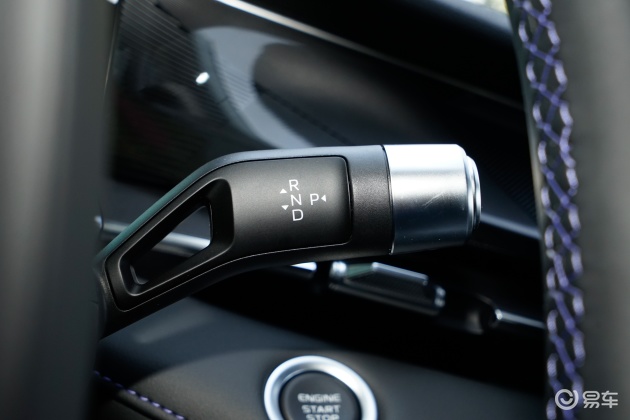
The car is equipped with car networking, driving mode selection, remote control key, Bluetooth key, interior atmosphere light, traction control (ASR/TCS, etc.) and other configurations, and the configuration has reached the mainstream level of the same level.
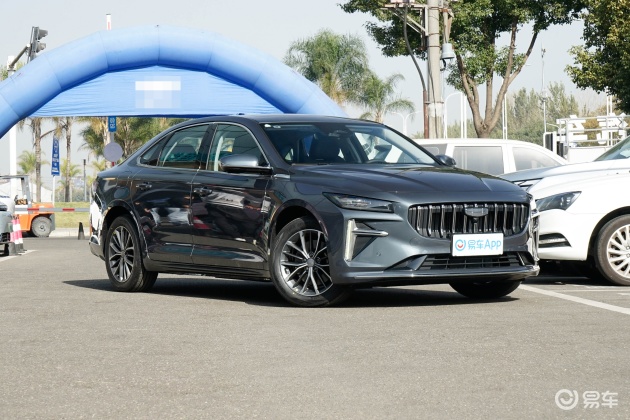
The model class introduced today is the most considered class when many people buy their first car, mainly because the size of this class is moderate and the price is reasonable. Today, you can go to the 4S shop to experience this car.
Shanghai: Grasp the prevention and control work carefully and resolutely block the spread of the epidemic.
Cctv news(News Network): Shanghai adheres to the general policy of "dynamic zero clearing", takes many measures and pays close attention to the prevention and control work to speed up the blocking of the spread of the epidemic.

At present, Shanghai has built more than 100 shelter hospitals with more than 160,000 beds. As the largest shelter hospital in Shanghai, the National Convention and Exhibition Center (Shanghai) shelter hospital welcomed the first batch of patients today (April 9), and other venues in this shelter hospital are also racing against time to construct and accept and deliver in batches.
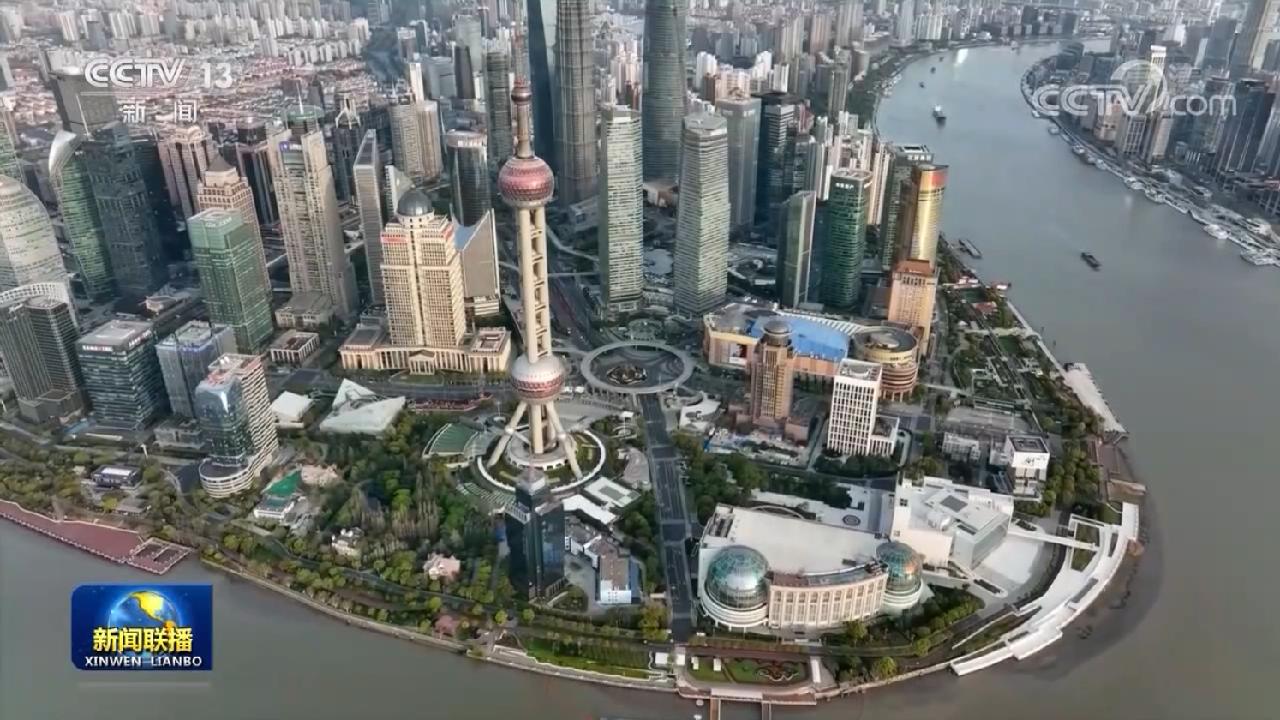
Since the outbreak, according to the principle of classified treatment, Shanghai has strengthened the medical treatment of COVID-19 patients. The special patients such as severe patients, children and pregnant women have been admitted to designated hospitals, while other light and asymptomatic infected people have been admitted to Fangcang Hospital. Today, the first batch of 16 people in Shanghai Putuo Cross-mining Center Fangcang Hospital have been verified to meet the discharge conditions. Since March, Shanghai has cured and discharged more than 10,000 people.

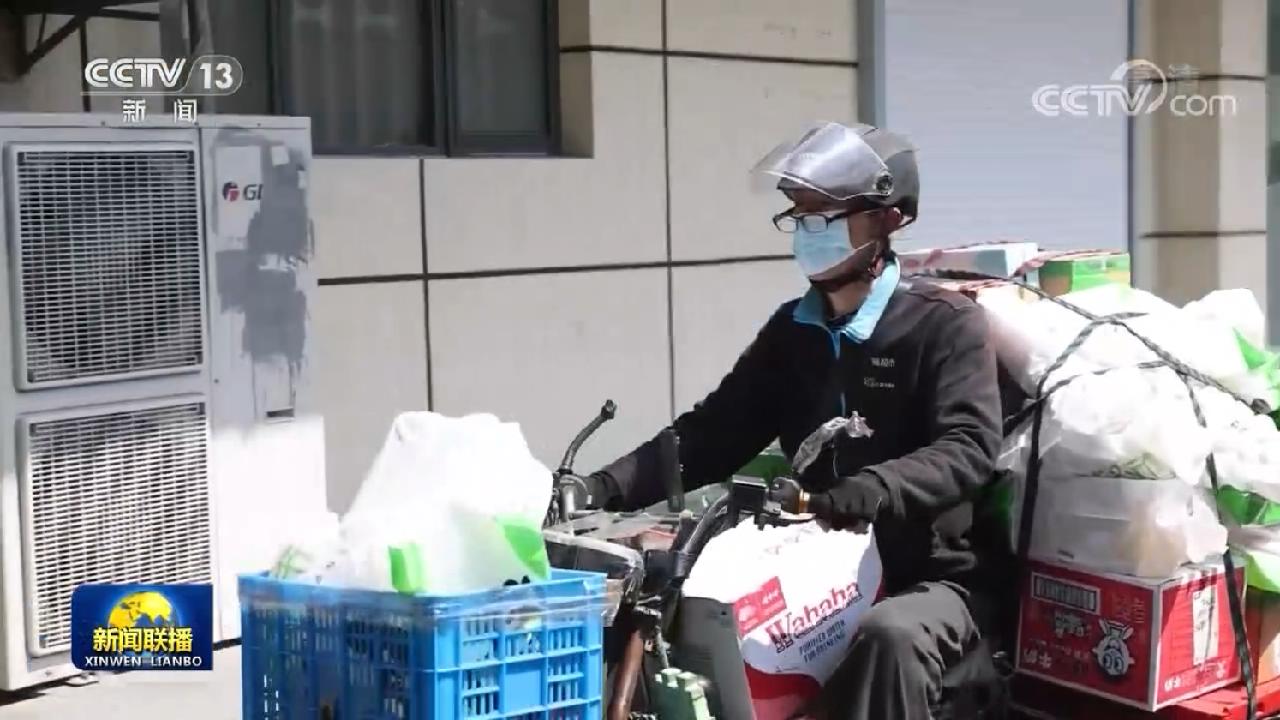

In terms of living material security, Shanghai has strengthened its contact with major vegetable and pork producing areas, locked in local sources of goods, and allowed courier and other security personnel who were locked up in the community for non-epidemic reasons to return to their posts. In order to effectively curb the spread of the epidemic, Shanghai plans to carry out another full-scale nucleic acid test, analyze and judge according to the test results, and implement differentiated prevention and control by district and grade.
How pure is love in movies?
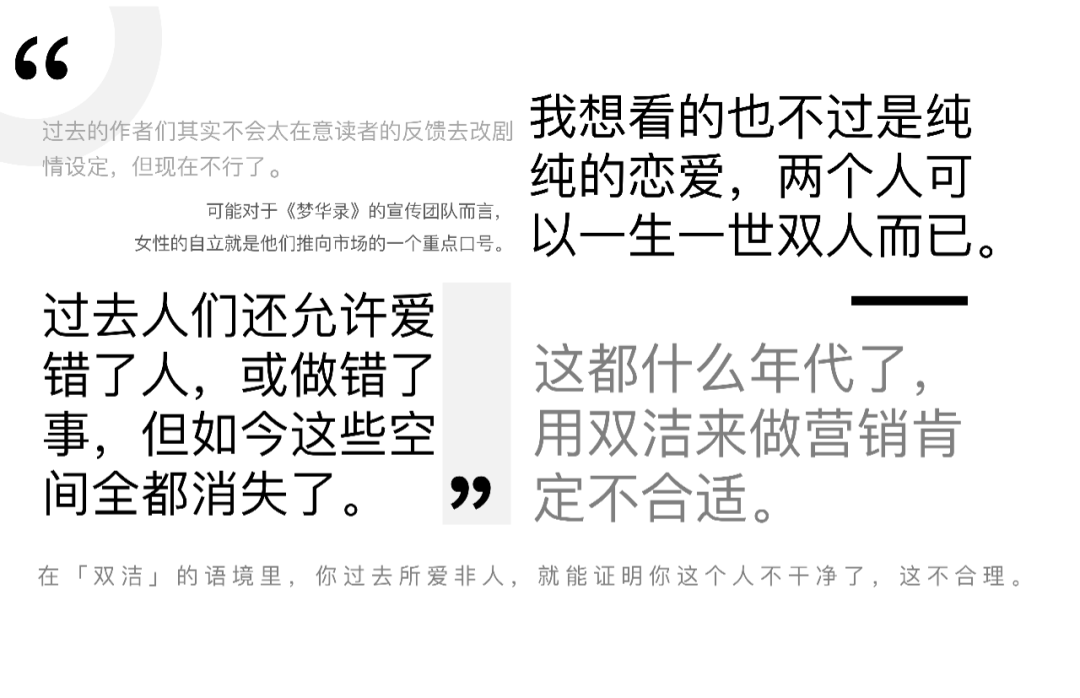
"Meng Hua Lu" made the double-clean entry hanging on the hot search list out of the circle again.
As the most popular online drama in the first half of this year, Meng Hua Lu is also the work of "Fairy Sister" Liu Yifei, who has violated the small screen for many years, and has attracted much attention as early as the initial stage of the file. However, with the development of the plot, while the audience was screaming for candy, a line that Zhao Paner and Gu Qian Fan exchanged their hearts in the play caused controversy on the Internet.
In fact, in the context of ancient dolls, this line has no drama. In the play, when Qian Fan, the male customer, and Zhao Paner, the female host, confide in each other, the man mentioned that although he passed away, "he never had any little lady"; The woman also responded that with her predecessor, she was also "paying attention to the ceremony."
Drama marketing: Both parties care about each other, and they are innocent, which is a good match. However, as a film and television work adapted from Guan Hanqing’s Wind and Moon Saving the Dust, Dream of China Record has added a brand-new concept of "double cleanliness" after abandoning the core of the original story itself, which makes the whole work look like it has white suspended in the ideal.
Shuangjie is not necessarily a retrogression in love, but it also brings strict moral judgment standards. In the past, film and television dramas did not avoid mentioning the colorful past of the protagonist, but now these complexities have become a thing of the past. At the moment when the word "Shuang Jie" was widely known with film and television dramas, more viewers began to express their concerns. "Why are even film and television dramas beginning to reject complexity now?"
one
fromPure love to double purity
The word "Shuang Jie" did not appear in recent years, nor did it become popular in recent years. It was only with the marketing and fermentation of film and television dramas that this word had a more well-known meaning. Literally speaking, "double purity" means that both men and women should maintain an innocent chastity standard in their feelings, which means that no matter how many predecessors they have talked about, they should be absolutely perfect when they meet the "the only thrill".

This constraint makes the audience who are used to watching relationships with men and women on TV a little uncomfortable, especially in front of a hot costume idol drama. The heat has brought controversy and split views. Judging from the public opinion on the Internet, the audience of Meng Hua Lu is clearly divided into two factions in dealing with the marketing of Shuangjie. One faction thinks that this is just a trend of the plot. The hero and heroine in the idol drama have never experienced the complexity of others, which is in line with the nature of sweet love. As for those voices that are not recognized, they are all water troops sent to discredit their families.
The other group of disapproving voices did not aim at the structure and direction of the story, but expressed their concern that the plot was too suspended today. Zhao Paner’s romantic rescue was originally a story about Guan Hanqing’s description of prostitutes at the bottom helping each other. Now, he has lost the word romantic and looked down on the prostitute. On the basis of Guan Hanqing, he turned the prostitute’s setting into a pure virgin musician who was forced to fall into the dusty family, but has been rehabilitated, abandoning the complexity of the characters and turning innocence into the biggest attraction of the whole drama.
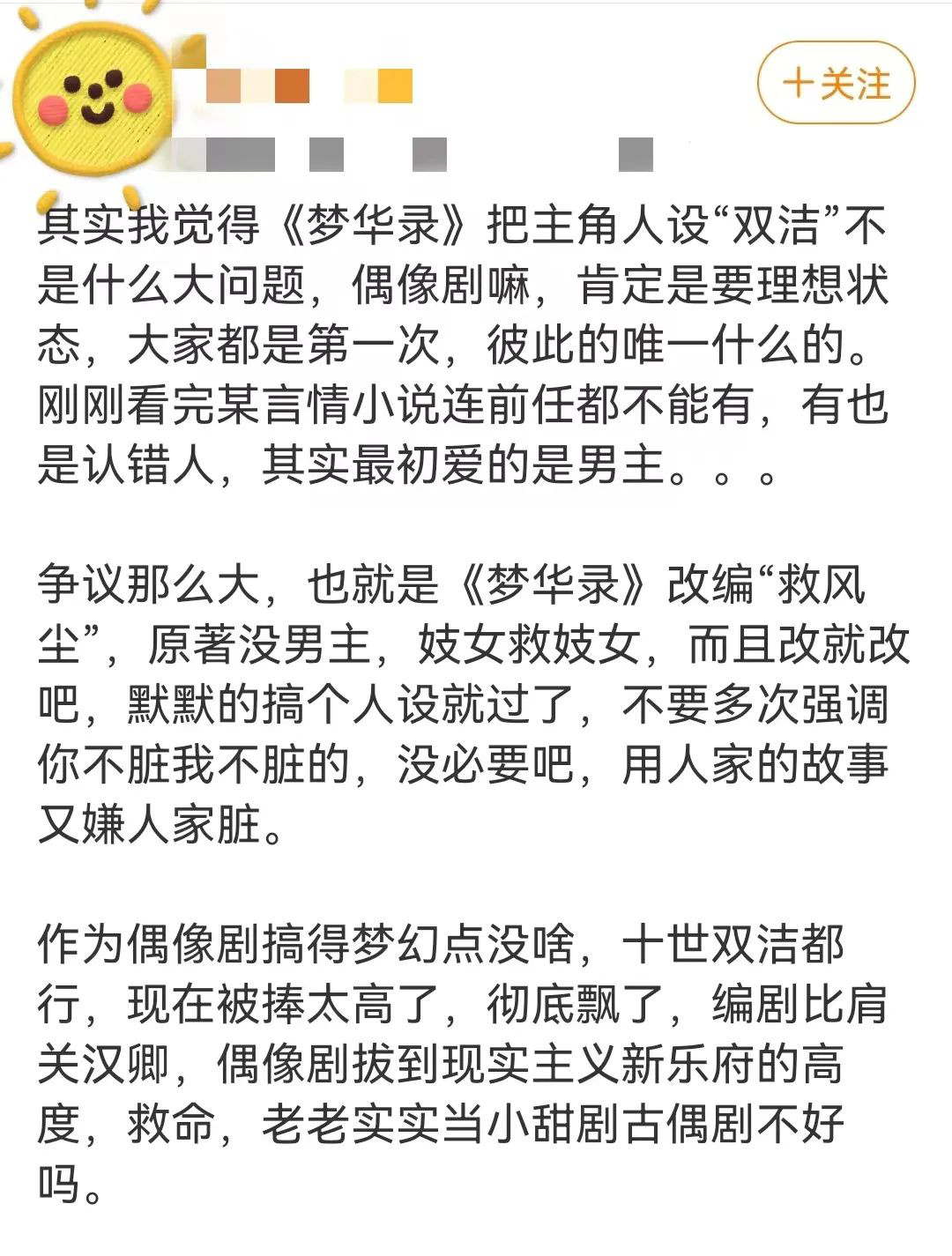
Netizens’ Views on "Double Cleanliness" in Meng Hua Lu
As a fan of Liu Yifei for many years, Liuliu spent money to watch the whole drama as early as the official pre-order finale. In her opinion, "this play is not as bad as others say, but I still like it very much." However, she also recognizes that there are also cognitive defects in the direction of drama promotion. "In this age, it is definitely not appropriate to use Shuangjie for marketing. After all, two people will not see each other because they are clean. Besides, women are self-reliant, but it’s a bit ridiculous to say that in their thirties. Anyway, I personally am not satisfied with the drama party’s marketing with Shuangjie. "
Then why is it that although both sides are audiences, there is still an irreconcilable gap in the concept of double cleanliness?
As we all know, film and television drama is a profitable industry in the final analysis. How to get a higher audience rating, the first consideration of the drama side is what the current target audience wants to see most. In the past, the audience had the opportunity to see all kinds of stories on the TV screen, because at that time, the society was not dominated by conservatism, but by the openness transmitted by reform and opening up and western film and television. The audience can see the uncut Titanic in the cinema, and the Legend of Lv Buwei, which teaches women to fall in love, at home. And even Zhao Paner, who caused a heated discussion today, had a book of love that didn’t change its settings at that time.

With the development of the times, the young people’s views on love have changed greatly. Because of market preferences, a large number of double-clean novels have been born, which also breeds a soil full of topic enthusiasm for film and television dramas.
Strictly speaking, the appearance of double cleanliness has its inevitable historical causes. Mainland readers first came into contact with this word in the comment area of various female frequency novels (female channels) on the platform. As the mainstream type of love women’s works, the content of female frequency novels is mainly composed of different themes that describe romantic love, such as romance and beauty.
Different from the trend that women are often regarded as prey and resources in male frequency novels (male channels), female frequency novels usually carry the yearning and longing of female readers for their own love because they are oriented to women, so the change of love relationship in the works reflects the changes of readers’ mentality to some extent.
From the perspective of context, from the late 1990s to the early 20th century, popular novels once again occupied the commercial market. At that time, the domestic cultural industry was not yet mature, and most of the popular romantic novels in the market were imported from Hong Kong, Taiwan and Japan through piracy. In these novels, men usually appear in the image of rich experience and resources, while women are required to be innocent, fragile and innocent, waiting for salvation in order to get a happy love.
This disparity in social status and resources between men and women was often labeled as pure love and sweet pet in the early years, and the type of love that the overbearing president spoiled his wife once occupied the list of female frequency novels.
However, with the rise of feminism and the disillusionment of love myth, the concept of unilaterally demanding women’s chastity was quickly criticized by the new generation of readers. "Why should women be good?" At one time, it became the hottest topic in the novel criticism area, and then the same moral standards were added to the hero’s body. From novel criticism to early warning (note: explain the direction of the story in a brief copy and warn readers of possible problems in advance), and then it swept from the novel platform to film and television creation, becoming a hot topic among the whole people.
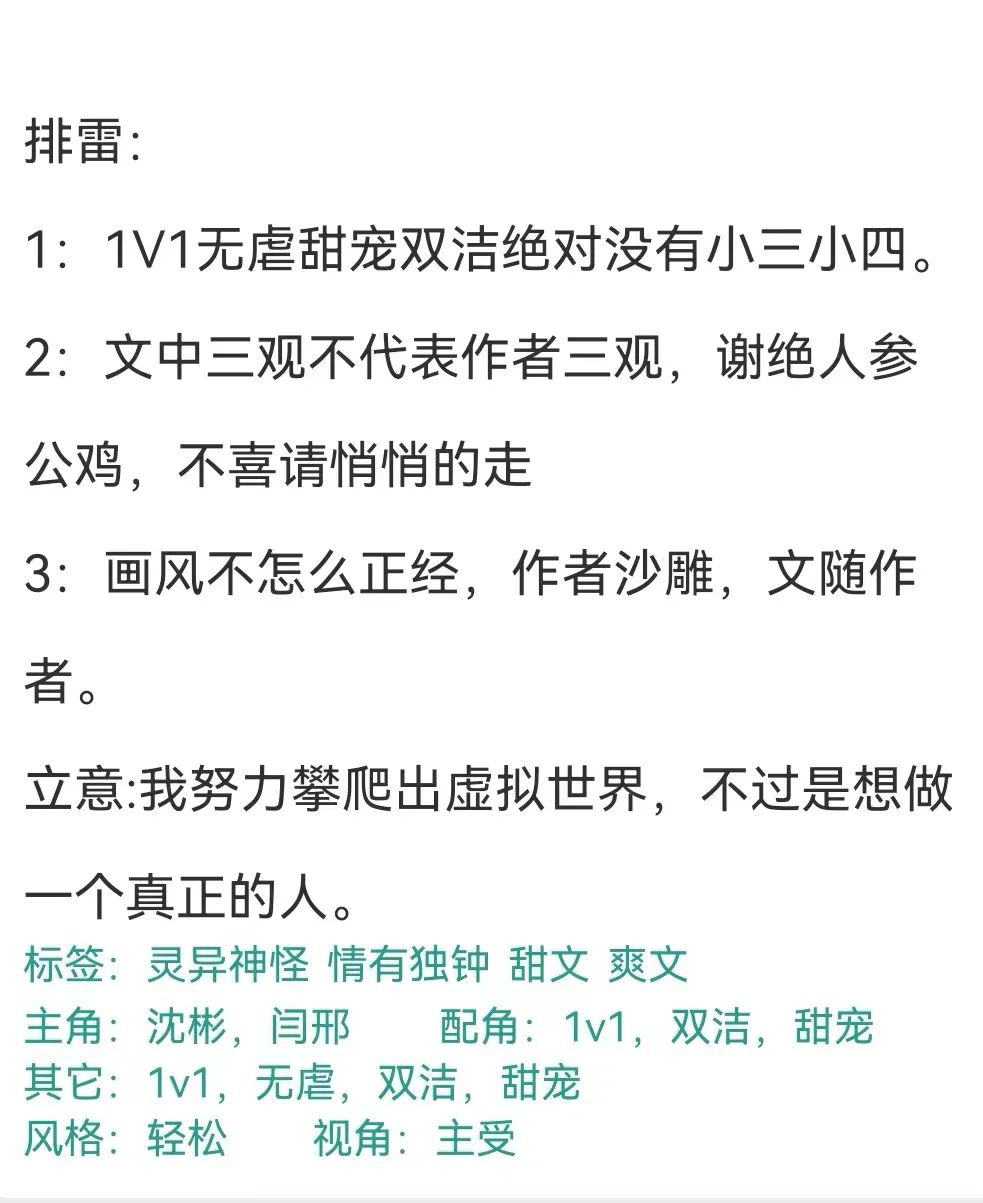
Guide to "Demining" in the Introduction of Jinjiang Novels
"The subtlety of Shuangjie is that it does have some progress, but not all." As a senior fan of online novels, Tata dabbles in male frequency and female frequency; No matter from comics, novels to beauty, everything is fine. She witnessed the changes of the internet atmosphere in the past 20 years, and also witnessed the whole process of the story of female frequency novels from complexity to purity.
In Tata’s memory, in early romantic novels, although there are hidden rules unilaterally demanding women’s innocence, they are not clear. As the story progresses, female characters will also have complicated experiences. The author doesn’t deliberately set characters for the sake of chastity, but it is more like "a selling point of the story, like the suffering of a virgin, because there were all kinds of stories at that time."
However, in the past decade, readers have become increasingly demanding on the requirement of chastity, but pure love seems to be not enough. "So there are many strange phenomena. In the past, when we read the rebirth article (a type in which the protagonist crossed back to his own life after death), there were often women who were miserable in previous lives and married by another man after rebirth, but now the author will directly emphasize that the’ past lives is clean in both places’ is a fake marriage, and the man is not married at all, waiting for his whole life.
Although it sounds outrageous, Tata admits that, as an irresistible trend in female-frequency novels, Shuangjie is occupying all kinds of creations on a large scale. For example, the most popular comedy film king of comedy in the past told the story of prostitutes getting love, but now the works with such complex characters are very difficult to judge, and the "clean society" composed of creators, audiences and censors can also be seen from Dream of China.
2
From deviant to mainstream
There was a golden period of "deviant" in the domestic female frequency novel creation environment. While romance and beauty blossomed, the creators also deconstructed the traditional romantic love form to some extent.
In many love women discussions, it is often considered that as a literary genre, beauty-seeking can make female creators more free to expand their preferences after replacing the role of women with that of men. Especially, Taiwan Province and Japan, which were introduced into China as early pirates, were not domestic readers and did not take the commercial route. The author was more concerned about how to write his own ideas.
However, with the appearance of the business journal (publication) of Tanmei and the large-scale purchase of IP for film and television dramas, as more and more people pay attention to Tanmei, a sub-cultural group, the intensity of supervision and censorship has also increased simultaneously.
Unlike romance, which is more easily accepted by the mainstream public, the love story of Tanmei, as a double man, has its own boldness in challenging secular ethics. For the sake of better commercial development and being accepted and understood by the public, Tanmei has gone through a stage from "letting a hundred flowers blossom" to being close to mainstream values, which requires the sexual singleness of both parties to gradually form a trend, and thus 1v1 and Shuangjie are produced.
"I like Shuang Jie very much. I read the article and see if the author has marked it. I think it’s okay. Isn’t Shuang Jie a personal preference? The author can also mark it as not double-clean, then I won’t click in to see it, which is good for everyone. " Reader Niki has read female frequency novels for many years. In her impression, in the past Jinjiang (Jinjiang Literature City) gold list novels, the greatest passion of men and the single-mindedness and fragility of women are the favorite descriptions. This contrast sometimes makes her feel uncomfortable. "I don’t quite understand what people who want to attack Shuangjie think. Is it worthy of pride to like a person who engages in seven tricks?" What I want to see is just pure love, and two people can be one person for life. "
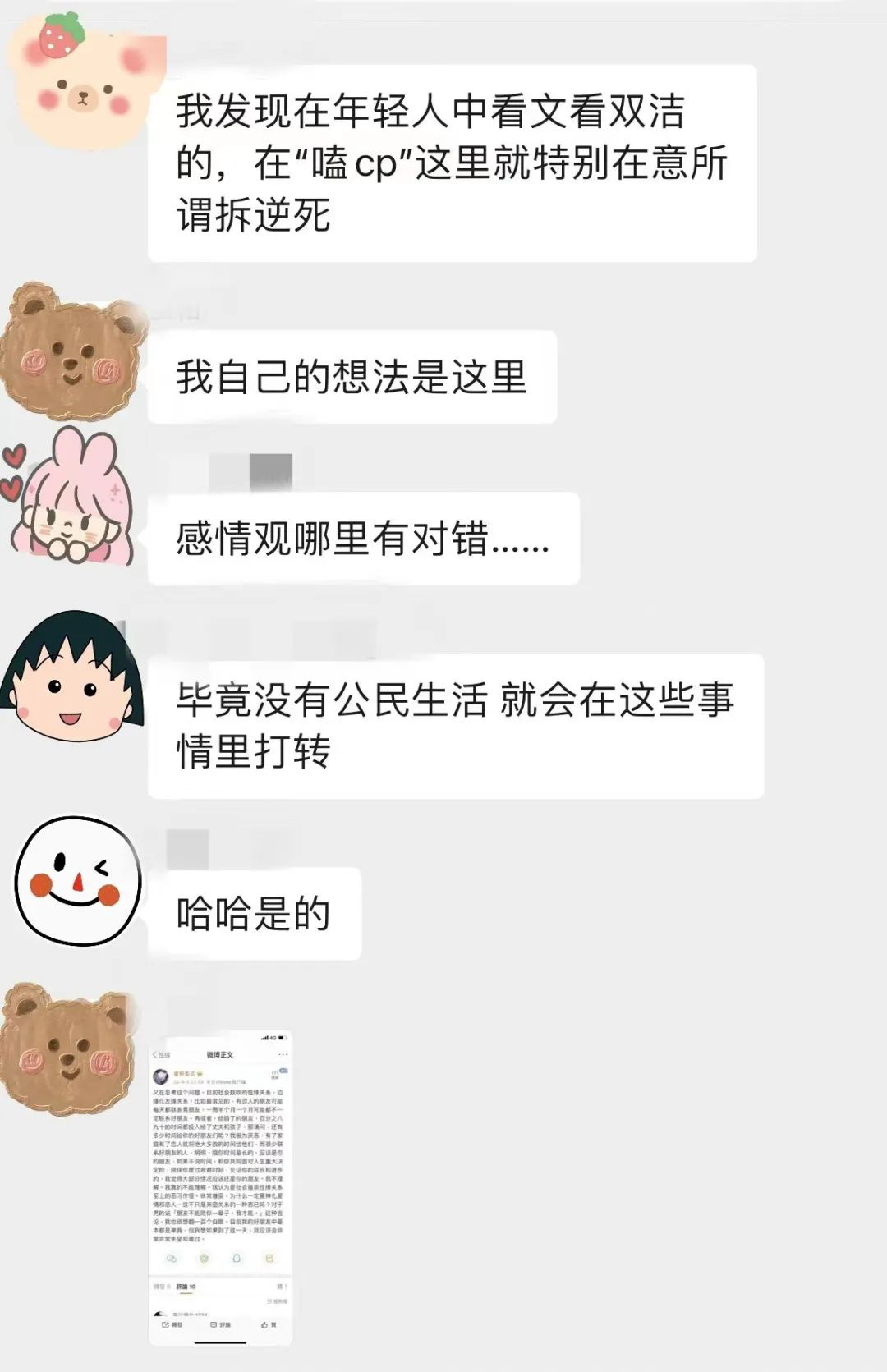
Discussion on "Double Cleanliness" by Netizens
In Niki’s view, Shuangjie has created a vacuum but pure emotional space. "Being faithful to one’s heart" is no longer a rigid requirement for women/recipients, but a moral code that both parties in love must abide by. For women who are still at the bottom of emotional relationship in real life, it is not only a spiritual sustenance, but also a great progress.
On the other hand, readers who don’t approve of double cleanliness, such as conch, think that "this is a great retrogression. After all, the word’ cleanliness’ will be used to describe sexual behavior, which in itself is considered unclean, which runs counter to the meaning of women’s liberation. Who wouldn’t fall in love with a few scum in this world? If you have the luck to meet true love as soon as you fall in love, the probability is very small, but in the context of double cleanliness, you can prove that you are unclean, which is unreasonable. "
However, the incomprehension between the two sides still only stays in the stage of online debate, and the scope involved is only between women. "After all, many female-frequency novels are women, and men really read double essays?" Conch asked, "isn’t that what women are imagining for men’s chastity?"
three
Will struggle with the audience of Shuangjie,
Not the core audience of ancient dolls
However, no matter how the pros and cons understand Shuangjie, it is undeniable that the environment has made its own choice. From the content of radio and television that "polygamy is not allowed" to the overwhelming reminder of "Shuang Jie" in female frequency novels, it has been shown that "Shuang Jie" has occupied a place in mainstream values.
Lucy, as a drama propaganda for many years, is also deeply touched by this. Today’s drama propaganda can’t bring negative effects, and it needs to be healthy and upward. As a colleague, she commented that the publication of Meng Hua Lu is smart, "it caters to the awakening of feminism at present, for example, using the slogan’ Women are more independent’ to talk about how the eldest woman gained love, money and social status through her own efforts."
In her view, whether it is the popular "Big Lady" in previous years or "Shuang Jie" who is arguing now, it is actually interpreted from the perspective of women’s power. "The former may be that women have obtained various resources through men and achieved themselves, just like all kinds of male cool routines, men can, why can’t women? As for the latter, women have the confidence to ask men to keep their virginity, and they can only ask each other when they are strong, so many people eat this set. "
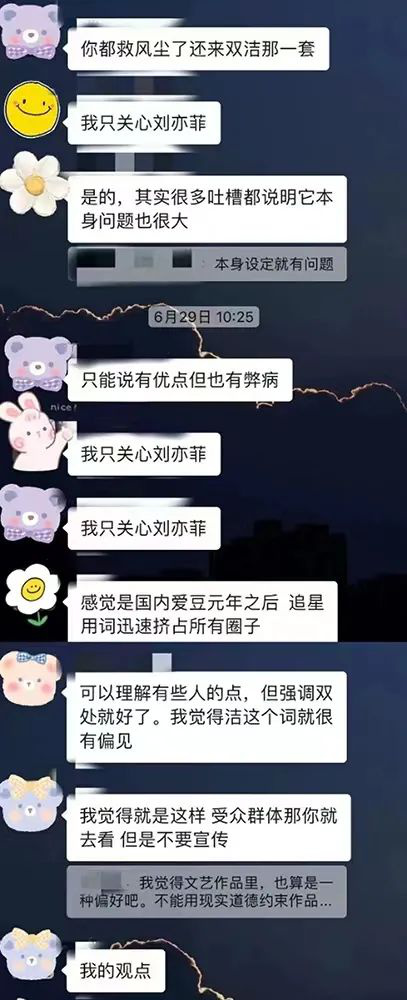
Discussion on "Double Cleanliness" by Netizens
People who will struggle about whether Shuangjie has brought about retrogression, most of them are not the audience of costume idol dramas, especially a drama with the love of handsome men and beautiful women as its core selling point. "Because in my opinion, no matter what this drama is about, we will extract a core that the public will love when we promote it. That may be a key slogan for the propaganda team of Dream of China, and whether Shuangjie has brought controversy to the market.
We can’t expect popular cultural products to carry too much ideological education, just like the conspiracy to promote the convergence of creative types is not just to see a clean audience. Xiaobai, a net writer for many years, is deeply touched by this. "In fact, in the early years, everyone wrote about beauty for love and power generation, which was purely their own love, but later the whole environment became more and more commercialized. Some people sell IP to earn money ashore, and some authors who used to write beautiful stories ran to write romances. Coupled with the emergence of platform VIP subscriptions, readers and authors have interests, so it is inevitable to make some compromises. "
"In the past, authors didn’t really care too much about readers’ feedback to change the plot settings, but now they can’t. Readers will directly ask if you are clean. Sometimes, if there is no target, readers may get angry and feel cheated when there is a link in the subscription chapter." Speaking of this, Xiaobai also said with a wry smile: "No way, sometimes it is reported, so it may be difficult for the work to be locked and rectified."
"In fact, double purity can also be regarded as the rise of conservatism," Tata said. "In a conservative environment, chastity is beneficial to women. In common online writing routines, women married single-minded Gao Fushuai through their purity, kindness, beauty and virtue, and got a class promotion. But for them, everything else is dispensable, and only chastity is the easiest to achieve. This is also a psychological comfort zone. "

Stills of "Love Collection"
Whether double cleanliness brings progress or retrogression is an issue that is difficult to clarify in the current environment. It seems to have brought some awakening, but on closer examination, "in the past, people were allowed to love the wrong person or do something wrong, but now these spaces have all disappeared, as if more shackles were put on each other."
But only one thing is certain. Under the influence of the consumer market, the topics that can bring topics and heat will not disappear quickly, regardless of whether the deconstructionism that the creators thought in the past still exists, it will gradually disappear with the process of commercialization. Love is still being praised, and double purity is just another narrative technique under the romantic framework.
Written by: Teacher Yan
— THE
Today’s Film Review | Why is it difficult for the "Twist" actors to take over Shen Teng?
Special feature of 1905 film network From stage plays to movies, the label Mahua FunAge has become the first choice for many audiences’ comedies, and the representative figure among them has now been upgraded to "box office koi fish", and all films in which he plays can get quite good box office results. In addition to Shen Teng, other actors who came out of Mahua FunAge also began to emerge. They are called "Twist" actors, and recent and upcoming films are all performed by "Twist" actors.

Comedy is a very challenging type. Whether it is the creation of comedy atmosphere, the polishing of punchline and proper limit’s handling, it takes a lot of effort. Shen Teng has a profound skill in this respect. He is the flag bearer of Mahua FunAge and a well-deserved synonym for the "Twist" actor. At present, the other representatives of the "Twist School" are "Wei Chang Ai Cai", who are four people. At present, they have not yet become the Mesozoic standard-bearers of domestic comedies. Why is it difficult for "Twist" actors to take over Shen Teng?

From the strength point of view, Wei Xiang, Chang Yuan, Allen and Huang Cailun are all actors with eighteen kinds of martial arts. They can control stage plays, movies and sketches, and there is no problem in their strength, but their current performance is still difficult to satisfy the audience. Tan Fei, a film critic, said: "There are various reasons, some are luck, some are works, and some are unclear in style." The specific situation of several actors should be treated separately.

The first is Wei Xiang, who starred in a more important comedy film "The Killer is Not Too Cold" in the Spring Festival file. In previous works, he always showed people with his ugly little image, usually as a supporting role. Wei Xiang’s performance is very grounded, with the texture of life, but if he wants to play the leading role, his performance needs to be more penetrating and have his own style. Before he can prove his resume, the audience will be worried and unconvinced about his performance.

Chang Yuan has been learning crosstalk since he was a child, and he has a certain skill in Quyi. However, it is actually difficult for a crosstalk performer to transform into a comedy film actor, because crosstalk performances are usually performed in one place, and film performances need to be integrated into the scene. The training of cross talk performance brings a sense of orderliness to Chang Yuan’s performance, which is more obvious in Warm Hug. After Mahua FunAge’s training, Chang Yuan has made some progress in this respect, and its relaxation can be seen in Li Mao’s performance as a prince. From Chang Yuan, we can see more possibilities and greater explosive power.

Allen usually appears on the screen as a simple and honest man. In popular words, he mostly plays "Iron Handy", such as Da Chun in the movie. His gender exchange in the film is eye-catching, which is one of his few self-challenges. After that, most of the films he starred in returned to the image of honest people he is good at and returned to the comfort zone. The image of an honest man is usually difficult to create more, and his performance is still in a changing process from blunt to completely relaxed. More audiences still hope that he can "upgrade" and make different attempts.

Huang Cailun’s performance in the stage play was excellent, and his performance was also impressive in the previous stage. However, there is a certain difference between stage play and film. After Huang Cailun came to the big screen, he still had the habit of stage play performance, which was too exaggerated compared with the film performance, making it difficult for the audience to enter the play. In addition, Huang Cailun took on too many plays and lacked certain screening, so the quality of the films performed was not good, which left a certain negative impression on the audience.

The current coffee spot of Wei Chang Ai Cai is not enough to obtain better resources. There are opportunities and their own reasons. Compared with other twist actors, Shen Teng has several important advantages. First, in terms of performance skills, Shen Teng is quite confident and exudes a sense of relaxation at any time and place; In terms of creativity, Shen Teng has been challenging himself. In the trailer that has not yet been released, we can also see a different Shen Teng; Most importantly, Shen Teng has a strong empathy ability. He can fully understand the joys and sorrows of the role, which is a rare talent for any actor.

Comedian is a very challenging profession. Only by performing naturally from the inside out can the audience in front of the screen smile. Comedians need to understand and love life very much, and the road to improvement is quite long. How many books they have read, how many roads they have traveled and how many people they know will be transformed into nutrients for comedy performances and add to the charm of comedians. I hope that in the big screen in the future, we can see more independent "Twist" actors.
Egypt will not accept Palestinian refugees. WHO warns that the situation in Gaza is getting out of control.
King Abdullah II of Jordan said during his visit to Germany on October 17th that Jordan and Egypt would not accept Palestinian refugees from Gaza. Egyptian President Seyce also said a few days ago that Egypt does not agree to transfer Palestinian refugees to Sinai Peninsula.
At a news conference with visiting German Chancellor Angela Scholz, Sethi said that the Israeli action of cutting off electricity and water in the Gaza is "a means to forcibly transfer Palestinians to Sinai Peninsula", which Egypt firmly opposes. Sethi stressed that all parties should make every effort to advance the Palestinian-Israeli peace process and come up with a "feasible" solution.
King Abdullah II of Jordan also stressed earlier that the conflict between Hamas and Israel must not be borne by others, and it is necessary to find a political prospect that can bring Palestinians and Israelis together and enable Arabs and Israelis to work together, otherwise the cycle of violence will continue.
Tedros Adhanom Ghebreyesus, Director-General of the World Health Organization (WHO), posted a warning on the social platform "X" (formerly Twitter) on October 18th that the situation in Gaza is "out of control" and WHO supplies have been stranded in the border area for four days. Tan Desai called on all parties to immediately stop the violence and allow relief supplies to enter Gaza.
At present, Rafah Port, which is located at the junction of the southern Gaza Strip and the Egyptian Sinai Peninsula, has not been opened, and it is also the only land passage in the Gaza Strip that is not controlled by Israel. Egyptian sources and witnesses revealed on October 17th that hundreds of trucks loaded with medical supplies, food, blankets and other humanitarian aid materials are waiting in line at the Egyptian side of Rafah Port in Gaza.
Talk about "cultural differences"
Generally speaking, Swiss people will wait patiently if they need to wait in line to buy things or do things. The people in front ask endless questions and dally, and the people in the queue behind are used to it. Everyone slowly comes one by one. For example, at the front desk of a hotel, the person behind the queue can’t think that the front desk staff is slow, because he must first meet all the requirements of the guest in front of him. When someone cuts in line or asks the person in front to hurry up, the hotel service staff may be unhappy and even criticize you and refuse your request. There is another difference. In hotels in China, service personnel always ask their superiors for instructions when making decisions, but not here, especially the front desk staff, who have great autonomy, so they are confident, sometimes a little arrogant and even self-righteous.
Bao Ximeng, who is in charge of the China market in the Swiss National Tourism Administration and has lived in China for eight years and speaks fluent Beijing dialect, said that the difference between the Swiss service staff and the service staff in China is that he will tell the guests bluntly if he has any dissatisfaction, including his dissatisfaction with the guests. His psychology is that I am in charge here! The status of service personnel in Switzerland may be different from that in China. They will never consider themselves inferior, bow and scrape, and feel inferior. So, if the consumer doesn’t respect him, he will fight you back! Instead of "the customer is always right" (or at least verbally), as the service staff in some countries do, I have nothing to do with myself.
Of course, there is another reason. Because of the high labor cost, most of the tourist service agencies in Switzerland have limited manpower, and the ratio of service personnel to guests cannot be exactly the same as that in other countries.
A general manager of a Swiss Chinese travel agency who has received many tourists from China also mentioned that China tourists call the waiter to come and serve as soon as they sit down in a Swiss restaurant. This is "different" in Switzerland, where guests are usually waiting for the waiter to come over and ask for various requirements. This may not be right or wrong, but without understanding this background, contradictions and even conflicts will easily occur. Also, China tourists generally speak louder, which has been criticized. Frankly speaking, this is mainly due to our strong spirit of self-criticism. Bao Simon said, in fact, this is not a big problem. He said, I have my own Mrs. China, and I have become louder. In addition, some Europeans speak louder, such as the Dutch.
Perhaps these misunderstandings and estrangements caused by China tourists’ inadaptability and unaccustomed in Switzerland are the so-called "cultural differences". However, if we look beyond this "cultural difference" and look at these trivial "contradictions and conflicts" that are often encountered in travel life, perhaps we should also mention another concept, which might as well be called "education".
For example, an "educated" person in a restaurant accustomed to "guests greet waiters", waiting for the waiters to take the initiative to serve, then he may really wait for a long time. Similarly, a guest who thinks this is just a "cultural difference" and uses it as an excuse to yell at the waiter in a restaurant will only be considered uneducated. In fact, the "when in Rome, do as the Romans do" summarized by our ancestors is really "educated". If you don’t know what to do,-then you can quietly see what others do! Don’t shout until you understand it. This is "education".
Ms Paula, general manager of Lekrone Hotel, a high-class hotel in Valais, said with tolerance and grace that China tourists’ learning and adaptability should be encouraged. She said that when China guests came to her hotel to stay and eat, they used to have to eat Chinese food, but now they are gradually accepting western food. But it is generally hoped that all the dishes, such as the first dish and the main course, will be served together, and the speed will be fast. "But they are also observing, quietly watching what others do, and then following suit."
Mr. Remo, who is in charge of marketing and sales in Interlaken Tourism Bureau, the most visited Swiss city in Chinese, said that China market is the largest international tourist market in this famous tourist city at the foot of Girl Peak. In order to meet the needs of these guests, they consider the needs of China tourists in every aspect of tourist reception, such as hotel facilities, restaurants’ catering and Chinese menus, Chinese shopping guides at shopping spots and so on. And the various tourism products they have launched are also trying to meet the needs of this market from all angles. But even so, there are still some problems that can’t satisfy China tourists. For example, unlike its neighboring countries, Switzerland uses the euro, but here it uses the Swiss franc. This may cause a lot of inconvenience to tourists who travel in many countries in Europe. Mr. Steven, who is responsible for the sales of Swiss-largest infant milk powder "Yarui Milk Powder" in European duty-free shops, is trying to conduct an all-round investigation on the needs of China tourists, hoping to meet their needs as much as possible and avoid misunderstanding due to ignorance.
Of course, from another perspective, "cultural differences" should not be an ostentatious excuse to ignore or attach importance to "education", a shield to muddy the water or a fig leaf of ostrich policy, and vice versa. The concept of "customer is God" should have been deeply rooted in people’s hearts long ago, and it should be acceptable regardless of whether it is educated or not, no matter how different cultures are. If his "education" conflicts with this concept, it doesn’t matter. Market, sales, supply and demand, cost performance and so on will definitely teach him in the end.
Bao Simon said that no country’s government has educated its citizens to travel so seriously and earnestly. Can you imagine the French government asking French tourists not to travel abroad in this way or that way? According to the tradition of the French people, they will definitely oppose the government: I will do what you don’t want to do! Bao Simon said that it is rare for China tourists to spit everywhere now. This is of course related to the continuing education of the China government. Bao Simon also said that from another angle, isn’t it cultural differences that tourists are looking for when they travel abroad? No difference, no attraction. It is normal and good to have differences.
That is to say, we should experience, understand, respect and finally tolerate "cultured", consciously and actively, instead of always trying to change "differences". That’s a summary, right? (He Nong)
"Star Project" blooms with spring flowers in Yuhang Wuchang to create a "district-oriented" industrial community model


United states secret service found suspicious powder in the White House, which was initially identified as cocaine.
On the evening of July 2, local time, US Secret Service officials found unknown white powder in the work area of the West Wing of the White House, which led to the short-term closure of the White House. Law enforcement agencies in the United States said that preliminary field tests on the powder found in the White House showed that cocaine was positive. After that, the White House reopened soon and the powder was sent away for further testing.
According to Washington Post’s report on July 3rd and 4th, after testing the unknown powder found in the West Wing of the White House, a fireman of the Hazardous Materials Group in Washington, D.C. broadcasted the test results by radio, saying that the identification results showed that the powder was cocaine.
美国缉毒局表示,本名为苯甲酰芽子碱甲酯的可卡因,是美国《管制物质法》(The Controlled Substance Act) 中的二类药物,它是一种强烈的兴奋剂,且具有很高强度的成瘾潜力。
发现粉末的白宫西翼工作区域与美国总统拜登居住的行政官邸相连。 每日,数百人在西翼出入工作。区域内设有椭圆形办公室、新闻区、总统工作人员办公室等工作场所。
特勤局发言人安东尼·古列尔米(Anthony Guglielmi)称,他们正在“调查该物质进入白宫的原因和方式”。他说,华盛顿消防部门十分确定,此物质如不吸食,不会产生致命危险,也不会构成威胁。
另据《卫报》7月4日报道,此次并非毒品第一次进入白宫。历史上有许多歌手、演员也私自携带违禁物品进入白宫。
据半岛电视台7月4日报道,事件发生期间,拜登 (Joe Biden) 以及家人并不在场。拜登和家人于6月30日前往位于美国马里兰州总统休假地的戴维营度假。同一周末,拜登向全国教师工会发表讲话,并准备烧烤活动以纪念美国独立日。
报道称,拜登已于7月4日回到白宫。